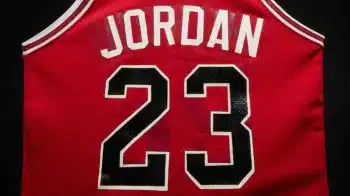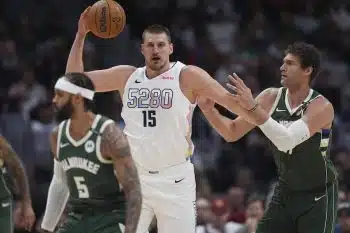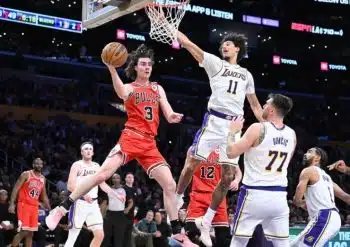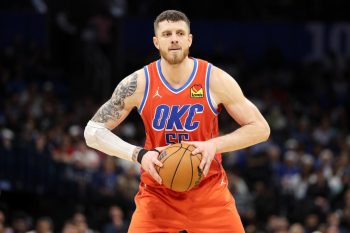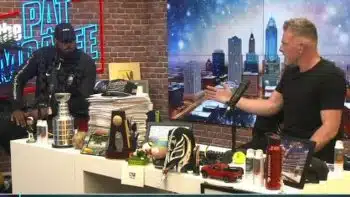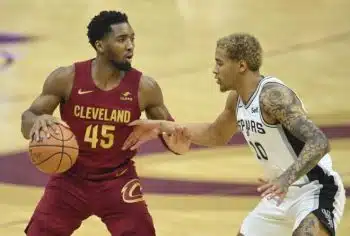NBA
Lakers Were Creative with Yi Jianlian’s Contract
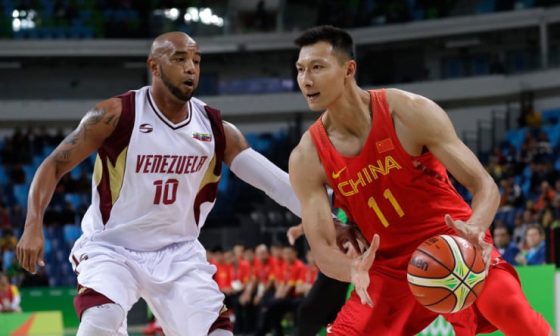
On Tuesday, the Los Angeles Lakers finally signed the second overall pick in the 2016 NBA Draft, inking forward Brandon Ingram to a $23.8 million rookie-scale contract.
Ingram was the last of his class to sign with a team, outside of the players who will spend at least a year overseas like Guerschon Yabusele (16th) and Ante Zizic (23rd) – both drafted by the Boston Celtics.
For the Lakers, the delay in the Ingram signing was about maximizing their cap space opportunistically.
Unsigned, Ingram took up $4.4 million of the Lakers’ cap space. Now signed, he’ll make $5.3 million for the coming season. That extra $880,280 in space marginally helped the Lakers in signing Chinese forward-center Yi Jianlian to a one-year, $8 million contract that is partially guaranteed.
The Lakers might have hoped to use their cap space in trade, but with Russell Westbrook opting to restructure and extend his contract with the Oklahoma City Thunder, few if any real options surfaced.
Earlier in the summer, the Lakers were able to use cap space to take on the contract of veteran point guard Jose Calderon from the Chicago Bulls along with a pair of second-round picks.
Unable to find a Westbrook blockbuster or another Calderon-like deal, the Lakers invested in Yi, who was the sixth overall pick by the Milwaukee Bucks in 2007. Yi has been out of the league since 2012, but has thrived overseas in China.
Perhaps he can help the team on the floor, or by appealing to a massive Chinese market that held a strong affinity for the now-retired Kobe Bryant.
Regardless, the Lakers’ contract with Yi is very team friendly in structure – almost as if the franchise was looking to preserve the benefit of cap room, even after going over the $94.1 million line with Yi, Ingram and forward-center Tarik Black, who signed on Wednesday.
Black, as a restricted free agent, took up just $1.2 million of the Lakers’ space. Now signed, he’ll earn $6.2 million for the coming season (the maximum allowed via Early Bird Rights). He also has a second, non-guaranteed season at $6.7 million – making him another potentially valuable trade chip for the Lakers.
In the case of Yi, his base salary pays just the minimum for a player with five years of experience ($1.1 million). In fact, his full $8 million salary is only guaranteed for $250,000.
The bulk of Yi’s contract is incentive-based. The most a team can pay a player in an unlikely incentive is 15 percent of the base salary. In Yi’s case, his entire salary, including the $6 million in bonuses, is considered likely by the NBA, opening the door for his uniquely-structured deal.
Additionally, teams cannot sign a player with date-based incentives, but the Lakers worked around that limitation by giving Yi bonuses based on number of games played.
If he plays in 20 games, he’ll receive a $2.3 million bonus. Then at 40 games, he’ll get another $2.3 million, and then again at 59.
As a free-agent acquisition, the earliest Yi can be traded is Dec. 15, which is true of most of the team’s other signings like Jordan Clarkson, Luol Deng, Timofey Mozgov and Marcelo Huertas. Because Black was paid via Early Bird Rights, receiving a raise greater than 20 percent, he cannot be dealt until Jan. 15.
Ingram cannot be traded for until Sep. 22 (30 days after signing with the team as a drafted player). All other Lakers are trade eligible.
By Dec. 15, Yi’s salary will be guaranteed for $341,737, earning $6,701 a day starting on opening night for the NBA on Oct. 25.
If Yi does not play in 20 games and is traded on Dec. 15, the Lakers would be able to bring back up to $12.1 million in salary. The incoming team could then waive Yi immediately at $341,737, shaving off $11.8 million off their cap.
Matching salaries in trades can be a challenge during the season, with most teams over the salary cap.
If, for example, the Sacramento Kings decided to part ways with DeMarcus Cousins – something they are not currently considering – the Lakers would be required to send out $11,957,900 in salary.
Theoretically, the Lakers would be able to reach that number by sending out Julius Randle, Anthony Brown and Yi ($12,141,756 combined). Sacramento would need two open roster spots to make such a deal legal in-season.
That assumes quite a bit: That Cousins becomes available, that such an offer from the Lakers is a suitable return for the Kings, etc. – but the example is more about understanding the mechanics of Yi’s contract, than guessing specifically what return he might help generate in trade.
If executed on Dec 15, and the Kings waived Yi immediately after this pretend trade became official (upon players clearing physicals), Sacramento would clear over $12.5 million off their books for the current season.
That assumes Yi does not reach his 20-game milestone, which would come on Nov. 30 in Chicago against the Bulls.
If Yi is a regular part of the Lakers’ rotation, playing in every game, his salary would be $2.6 million guaranteed on Dec. 15. – still a $10.2 million savings for the Kings, in the above example.
The earliest Yi can reach 40 games is on Jan. 6, when the Lakers host the Miami HEAT. By then, he will have earned $489,153 of his base salary, plus $4.6 million in bonuses, for a total of $5.1 million.
On Jan. 10, all non-guaranteed salaries lock in across the NBA. Traded after that milestone, but before playing 59 games, Yi will have locked in $5.7 million.
The NBA has yet to announce the trade deadline for the 2016-17 season, which is normally the 17th Thursday of the season, or Feb. 16. Given the All-Star Game is on Feb.19, the deadline could be delayed until Feb. 23.
The earliest Yi’s final $2.3 million bonus can kick in is on Feb. 24, when the Lakers visit the Oklahoma City Thunder.
That doesn’t look coincidental.
It doesn’t mean the Lakers signed Yi to trade him, but it’s certainly a consideration. If he, instead, can quickly become a positive contributor on the floor, the Lakers will happily take that return on their $8 million investment.
Guessing which of the Lakers’ potential trade targets becomes available is a fool’s errand, especially in August.
The Lakers may also have no interest in dealing Randle.
That said, the Lakers have the flexibility to make deals this season, with Calderon’s expiring $7.7 million contract, Black’s non-guaranteed second year and a number of young, developing players that may appeal to trade suitors before the deadline.
Additionally, the Lakers have yet to sign rookie forward Zach Auguste, who has agreed to terms with the franchise. The Lakers were happy with what they saw with Auguste in Las Vegas, as part of their summer league squad.
Presently, the Lakers have 15 guaranteed players. Auguste may be facing an uphill battle to make the roster, unless the team makes room.
To date, the Lakers have not been able to find a taker for Nick Young in trade. Young, who has fallen out of favor over the past couple of seasons with the franchise, will earn $5.4 million for the coming season with a player option for $5.7 million the following year.
The Lakers have until the end of August to waive and stretch out Young’s $11.1 million salary over the next five years (at $2.2 million a season).
Given the team is already over the cap at $99.3 million, there’s no obvious incentive to stretch Young before September.
If the team chooses instead to waive him after August, they can stretch his final year over three seasons at $1.9 million. Or the team may just hold onto him to start the season, looking for trade opportunities before the deadline.
The Lakers can also choose to waive him without stretching his salary, eating up that full $5.7 million for next season (less any money Young might be willing to give up in buyout).
The obvious goal is to find a trade that sheds his salary altogether, but to date, the Lakers have not found a market for the perimeter scorer.
Finally, the Lakers project to have as much as $31.7 million in cap space next summer. That assumes a $102 million salary cap, and that the Lakers do not have their first-round pick, which will go to the Philadelphia 76ers if not in the top three (still owed for the Steve Nash trade).
It also presumes the Lakers pick up rookie-scale options on D’Angelo Russell, Larry Nance Jr. and Randle – and that the team can get Young completely off their books before next July.
The options are a lock; the Young salary is a bit more precarious.
